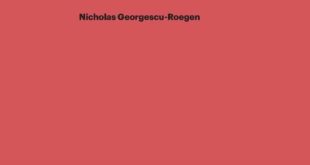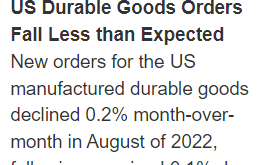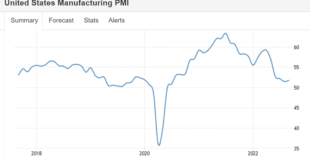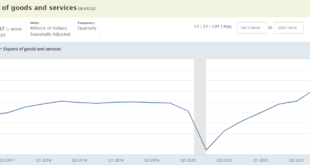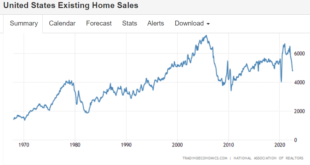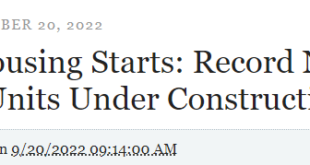This is my second post on the recent troubles with Sterling. In the first, I discussed vibes, mood, and animal spirits. I do think that is the best way to think about what’s going on, but I promised to write as an economist typically do (not as we all our in this case). The basic facts are that Chancellor Kwasi Kwarteng announced a mini-budget revision including elimination of the 45% income tax bracket. Oddly many financiers who would directly...
Read More »Uncertainty
from Lars Syll It may be argued … that the betting quotient and credibility are substitutable in the same sense in which two commodities are: less bread but more meat may leave the consumer as well off as before. If this were, then clearly expectation could be reduced to a unidimensional concept … However, the substitutability of consumers’ goods rests upon the tacit assumption that all commodities contain something — called utility — in a greater or less degree; substitutability is...
Read More »Durable goods, housing permits, new home sales, consumer confidence
No recession here: Permits for new home construction are down from the post-Covid bounce but remain above pre-Covid levels: New home sales recovering from rate hike fears and returning to pre-Covid highs, as in fact rate hikes increase gov deficit spending on interest expense paid to the economy, adding to incomes and spending:
Read More »Open thread Sept. 27, 2022
Status quo ante bellum: what does it mean for the war in Ukraine
Back in 2011, I wrote a post arguing that self-defense (including collective self-defense) is justified only to the extent of restoring the status quo ante bellum. That is, having defeated an aggressor, a country is not justified in seizing territory, unilaterally exacting reparations or imposing a new government on its opponent. Conversely, and regardless of the alleged starting point, countries not directly involved should never recognise a forcibly imposed transfer of territory...
Read More »Status quo ante bellum: what does it mean for the war in Ukraine
Back in 2011, I wrote a post arguing that self-defense (including collective self-defense) is justified only to the extent of restoring the status quo ante bellum. That is, having defeated an aggressor, a country is not justified in seizing territory, unilaterally exacting reparations or imposing a new government on its opponent. Conversely, and regardless of the alleged starting point, countries not directly involved should never recognise a forcibly imposed transfer of territory...
Read More »US manufacturing, bank loans
Stabilizing at modest expansion levels, helped by exports due to relatively low cost US energy: No sign yet the Fed rate hikes have worked to slow lending and demand as presumed they would:
Read More »Exports, multi-family housing starts, unemployment claims
US exports continue to grow rapidly as the US has the least expensive energy costs.It’s an indirect way to export energy and it works to keep the $US relatively strong: New highs and growing rapidly: No sign of stress here:
Read More »Existing home sales, architecture billing index, Biden response
Sales had leveled off pre-Covid, then took a Covid dip followed by a recovery bounce,and now seem to be maybe a touch below the pre-Covid range: Moderate growth in this leading indicator: I have no idea what this response means as we gravitate towards nuclear war:
Read More »Housing starts, consumer sentiment
Housing may be bouncing back as the fear of rate hikes is overtaken by the increase in incomes: Nice move up away from recession, though too soon to say things have reversed:
Read More » Heterodox
Heterodox

